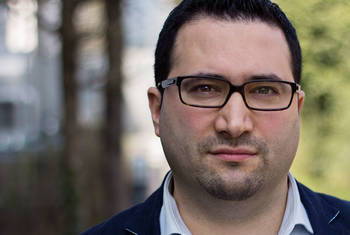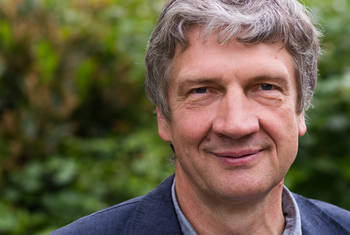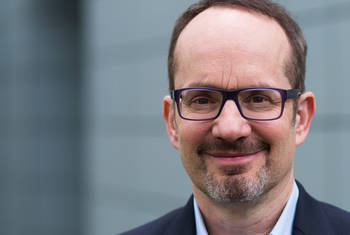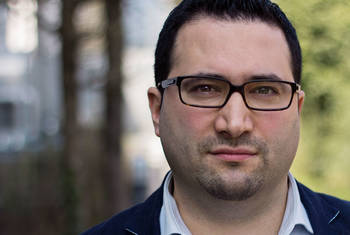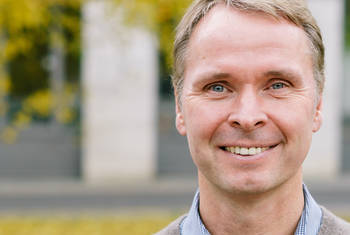Neysan Rafat Is the Course of a Sepsis Influenced by the Mobilization of Endothelial Progenitor Cells?
Neysan Rafat is a doctor at the University Clinic Heidelberg, Germany. He specializes in Pediatrics, Nephrology, and Emergency Medicine. In 2009, Rafat won the Young Investigator Award of the Medical Faculty Heidelberg, followed by the Fokko van der Woude Research Grant of the German Kidney Foundation in 2010. In his current research, Rafat focuses on the course of a Sepsis, reviewing the research done and exploring further research that could help move the knowledge on Sepsis.
Area of Research
Endothelial Dysfunction and Regeneration, Vascular Stem Cell Biology, Vascular Stem Cell Therapy
since 2015
Specialist for Pediatrics
Heidelberg University (Ruprecht-Karls-Universität Heidelberg)
General Pediatrics, Pediatric Neurology, Metabolism, Gastroenterology, Nephrology
since 2010
Junior Group Leader
Heidelberg University (Ruprecht-Karls-Universität Heidelberg)
General Pediatrics, Pediatric Neurology, Metabolism, Gastroenterology, Nephrology
2009-2011
Postdoctoral Fellow
Heidelberg University (Ruprecht-Karls-Universität Heidelberg)
Department of Internal Medicine I and Clinical Chemistry
2009-2015
Resident
Heidelberg University (Ruprecht-Karls-Universität Heidelberg)
General Pediatrics, Pediatric Neurology, Metabolism, Gastroenterology, Nephrology
2007-2009
PhD-Student
University of Groningen
Department of Pathology and Medical Biology
2004-2007
Doctoral Student
University of Mannheim (Universität Mannheim)
Department of Anaesthesiology and Critical Care Medicine
2009
PhD in Medical Biology
University of Groningen
2007
MD (Dr. med.)
Heidelberg University (Ruprecht-Karls-Universität Heidelberg)
2007
State Exame in Medicine
Heidelberg University (Ruprecht-Karls-Universität Heidelberg)
- German Society of Pediatrics and Adolescent Medicine
- German Society of Pediatric Nephrology
- German Society of Nephrology
Fellowships
- Young Investigator Award of the Medical Faculty Heidelberg (2009)
Prizes
- Roger-Bone-Award 2008 of the German Sepsis Society (2008)
- Poster award of the German Sepsis Society at the „3rd International Congress Sepsis and Multiorgan Dysfunction" in Weimar (2007)
- Winner of the Session “Immunology” at the “15th European Student Conference” in Berlin/Germany (2004)
- Medical Student Jury Award at the „11th International Student Congress of Medical Sciences“ in Groningen/Netherlands (2004)
- Fokko van der Woude- Research Grant 2010 of the German Kidney Foundation and the German Society of Nephrology
Sepsis is a common disease in intensive care. Under this condition the body reacts to infection by injuring its own tissues and organs which leads to high mortality rates. Until now reliable methods to identify vulnerable patients are lacking, and treatment is mainly directed at its symptoms. The research presented in this video focuses on endothelial progenitor cells, a cell type derived from the bone marrow circulating in the bloodstream. Their role in the development and healing of sepsis is examined. In order to quantify the endothelial progenitor cells the study uses flow cytometry – a biotechnological method to sort and count cells. The findings indicate that VEGF, the vascular endothelial growth factor, correlates with a positive outcome of the disease. These results specifying the role of endothelial progenitor cells can lead to new therapies for sepsis and may in the future also help to cure various diseases such as diabetes or strokes by supporting endothelial regeneration of the body itself.
LT Video Publication DOI: https://doi.org/10.21036/LTPUB10066
Increased Circulating Endothelial Progenitor Cells in Septic Patients: Correlation with Survival
- Neysan Rafat, Christine Hanusch, Paul T. Brinkkoetter, Jutta Schulte, Joachim Brade, Jan G. Zijlstra, Fokko J. van der Woude, Klaus van Ackern, Benito A. Yard and Grietje Ch. Beck
- Critical Care Medicine
- Published in 2007


